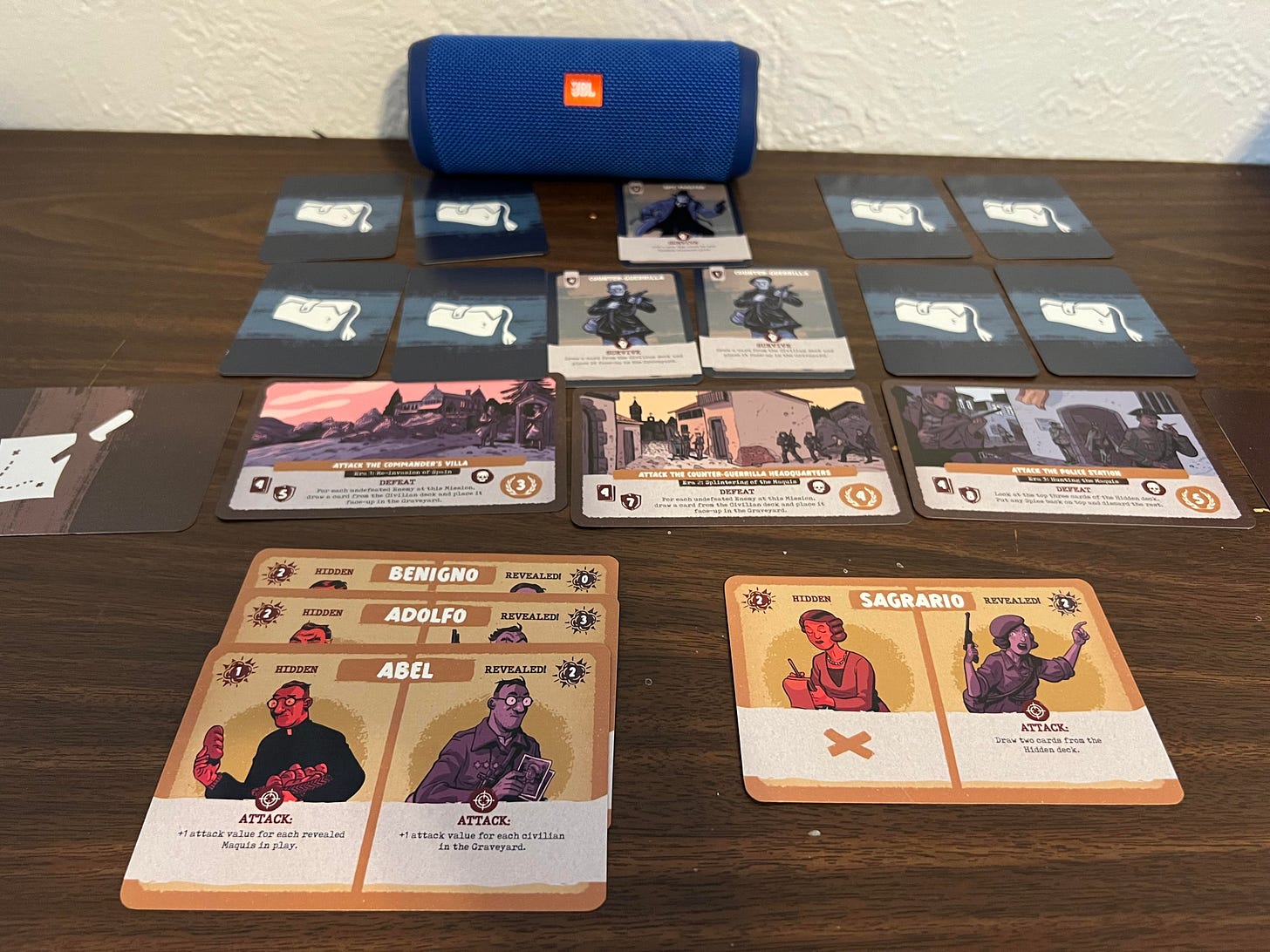Paper Time Machines
It’s a poorly kept secret that historical wargames have a marketing problem. Despite taking ten undergraduate history courses, I played nearly fifty modern board games before I tried a wargame. I still hesitate to buy games I’m sure I would enjoy because I know I’d have trouble convincing others to play.
In his article “How to Sell Wargames to the Non-Wargamer,” Michael Peck argues that the main issue plaguing the wargaming hobby is its lack of exposure: even soldiers Peck interviewed said that they were unaware that such games existed.1 It’s tragic how this is the case for so many history buffs and avid gamers who have so much to contribute to the hobby.
Peck argues that simplifying wargames is not a solution in and of itself — if no one has heard of them, then they could be the greatest, most accessible games in the world yet not reach an audience.
While I agree with this sentiment, Peck glosses over several other factors which play just as large a role for someone who is aware of the hobby but is having trouble getting the most out of it.
For an optimal experience in wargaming today, you should have:
A relatively strong interest in history
Experience and/or interest in hobby board games
Disposable income to buy the games you want
A friend (or two, or three) to play them with
Willingness to absorb dense rule books
For me, points 3 and 4 are the real hurdles, which is why I find myself designing games with fewer components and for fewer players. But points 2 and 5 pose real challenges, too — though hobby board gaming is in somewhat of a renaissance, it is still a far cry from the popularity of other dominant forms of media. So simplicity is also key.
A mid-afternoon game of Resist!, a game about the Spanish resistance against Francisco Franco. I won, but just barely.
The Hooks
As I get deeper into this hobby it’s harder to imagine a world where I didn’t discover it, since it’s become a source of such joy and learning these past few years.
For me, the appeal is simple: games the best way to experience history, hands down. A well-made historical game is a paper time machine. It transports you to the eras that pique your interest, and puts you in the shoes of a political faction, commander or even just an everyday person. By the end of the game, you come to understand their place in the world a little better — why they wanted what they did, how hard it was to earn, what they could have done differently.
But you’re not thinking about all that, at least not consciously. You’re trying to win a game! The magic really happens when you are so engaged in the game that you forget that real people had to make some version of the decisions you are tasked with.
Peck adds a few more appeals which I haven’t engaged with much yet, like the ability for wargames to depict the present and predict the future. But the imaginative leeway of the genre — its ability to answer the alluring what-ifs — that keeps me coming back.
As always, thanks for reading. If you’d be willing to play test the next Game of the Month before it releases, please let me know! I’d really appreciate your feedback. I’ll also have exciting news about Insurgent soon, so stay tuned for that.
Happy gaming,
Matt
Michael Peck, “How to Sell Wargames to the Non-Wargamer,” in Zones of Control: Perspectives on Wargaming, ed. Pat Harrigan and Matthew G. Kirschenbaum (MIT Press, 2016), 907.


